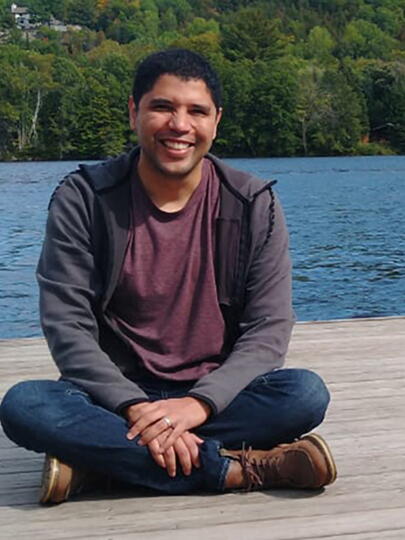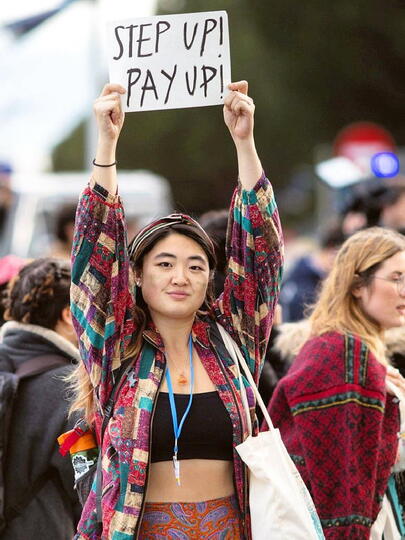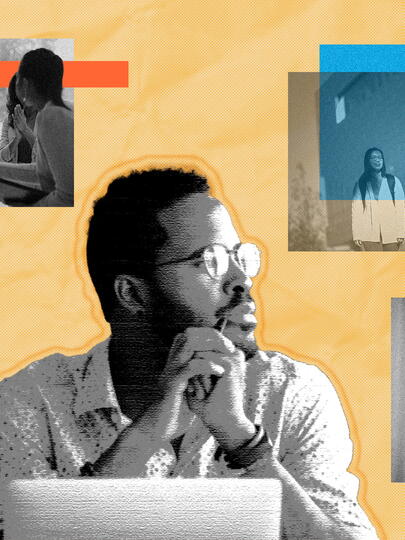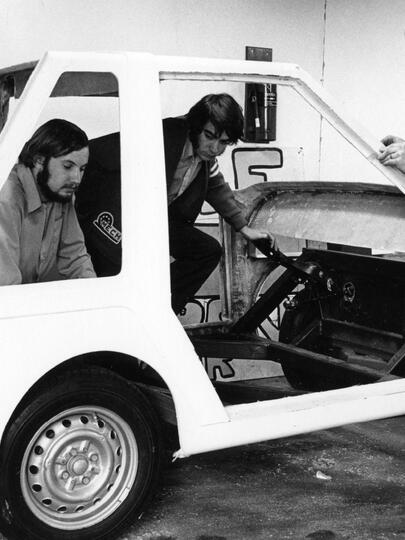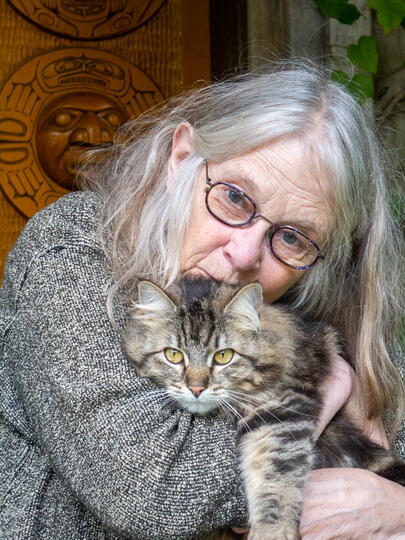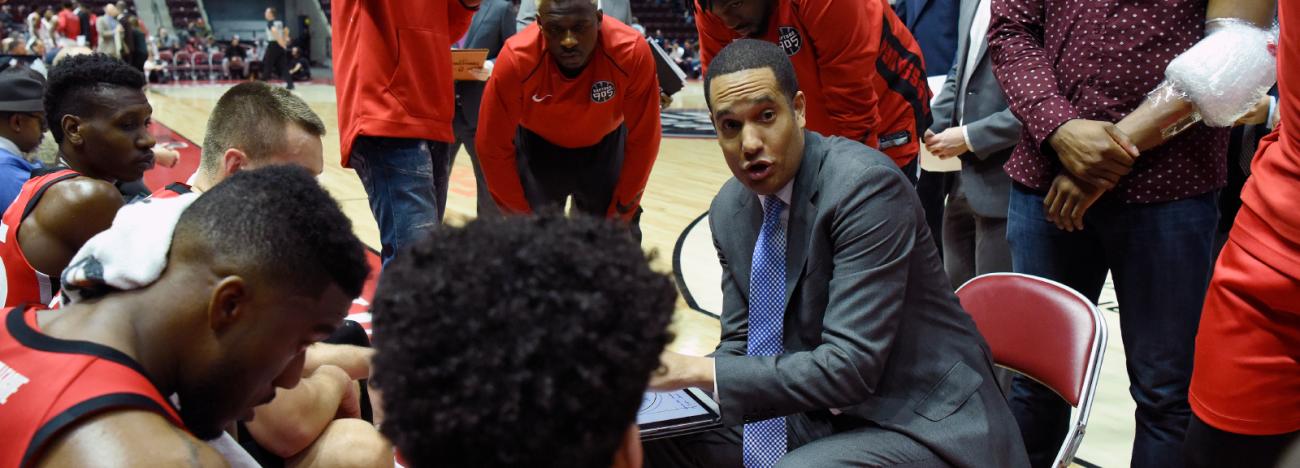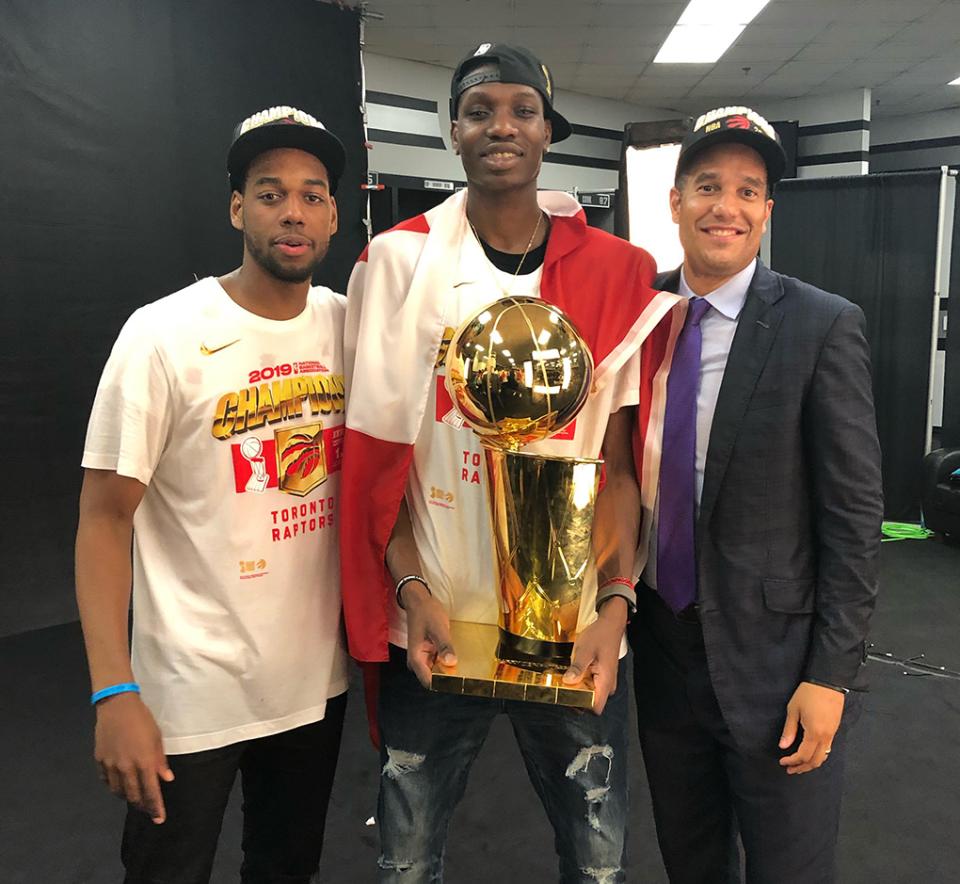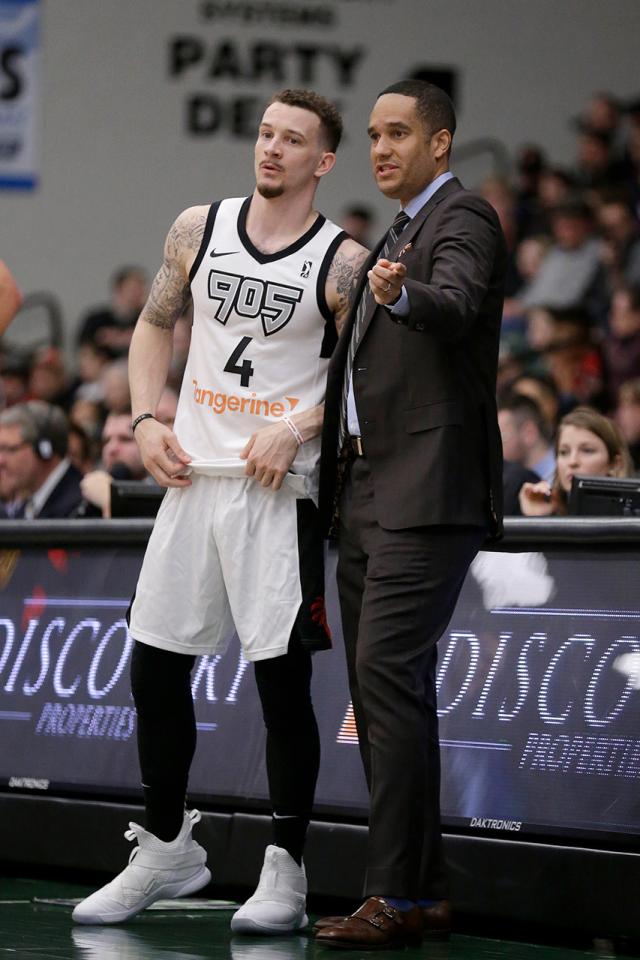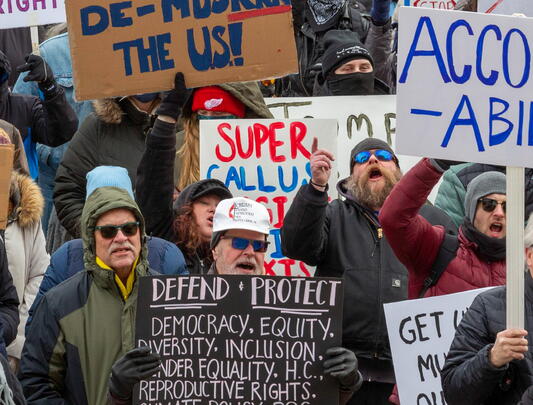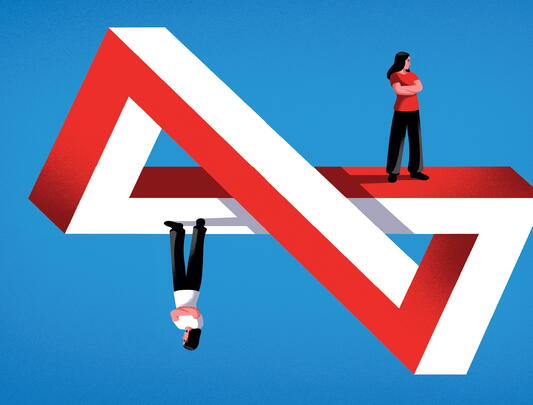Winning Ways
It’s the last moments of Game 7 in the NBA Eastern Conference Semi-finals, and Toronto Raptor Kawhi Leonard takes a buzzer-beater shot against Philadelphia. The ball arcs, hits the rim, bounces for what seems like an eternity while thousands of fans across Canada hold their collective breath . . . then drops through the net for the win. The crowd instantly unleashes a deafening victory roar. This was the first time in NBA history a Game 7 was decided on a buzzer beater and it was a moment that helped propel the Raptors to the NBA Finals for the first time in team history.
While everyone else in the arena erupted with excitement, one man stood frozen on the sidelines, his mouth wide open. For Jama Mahlalela, BHK’04, the dream win delivered much more than the emotional high enjoyed by die-hard fans; it was the ultimate reward for years of dedication to the game he loves and the people who play it.
“I stood there for a good 30 seconds before I could move,” remembers Mahlalela, who is the head coach of Raptors 905, the organization’s developmental team squad. But by the time the Raptors went on to defeat the Milwaukee Bucks and the Golden State Warriors to become the first team outside of the US to win the NBA Championship, he was more than ready to party with them in the locker room. “Champagne bottles were popping,” he said, “and we had a nice time taking photos with the trophy. It was really special.”
Mahlalela was a key member of the team that helped the Raptors secure their big win. Throughout the playoff run, he and his 905 coaching staff were advance scouts, analyzing hours of video of opposing teams, then briefing players on what to expect when they went into battle with their opposite numbers.
The Raptors were often able to turn their game around mid-series and end up winning, even after an inauspicious start that might have dampened the players’ spirits.
“Playoff strategy starts with knowing that you are going to lose some games in every series,” says Mahlalela. “The [opposing] teams are too good [for us] to expect to sweep every round. So when you go in knowing that you will lose some games, it makes it easier to not have an emotional reaction to a loss.”
Throughout the playoff run, Mahlalela and his 905 coaching staff were advance scouts, analyzing hours of video of opposing teams, then briefing players on what to expect when they went into battle with their opposite numbers.
Instead, the Raptors would adjust their strategy to great effect based on the scouts’ observations. “The scout team was mainly looking at the offence of our opponent each round and what they were running at a high volume. Then we mimicked those plays in practice with our scout players, so the starters could get a better feel for where the players would be and where they would be moving,” says Mahlalela.
“Jama was a big-time help during the playoffs, and his input helped our team run better,” says Dan Tolzman, the Raptors’ assistant general manager and vice president of player personnel. “He knows how to make players feel confident in what they do. Plus, he’s one of the nicest guys on Earth.”
The Nice Guy
Tall and wiry, Mahlalela looks like he should be playing centre for the Raptors instead of patrolling the sidelines. When he speaks, he looks people in the eye and flashes the kind of smile that instantly puts them at ease. Meeting Mahlalela, you wouldn’t know the sadness in his early years.
He was born in the Kingdom of Eswatini (formerly Swaziland), which has the highest prevalence of HIV in the world, and AIDS led to the deaths of several members of his family. His parents brought him to Toronto to give him a better life, and his ambition in school was to become a teacher and perhaps return to help educate youngsters in his native land.
While attending Oakwood Collegiate Institute in Ontario, he spent his Saturday mornings volunteering at the Raptors program for kids, sweeping the hallways and parquet floor, and doing other chores.
Several universities were interested in recruiting the six-foot-three basketballer, but he chose UBC “after seeing the mountains and ocean.” He played for the Thunderbirds, serving as co-captain and helping the team win the 2003 Canada West title. In his senior year, he was elected president of the Thunderbird Athletes Council, an organization representing more than 600 athletes on varsity teams.
Several universities were interested in recruiting the six-foot-three basketballer, but he chose UBC “after seeing the mountains and ocean.”
Mahlalela credits Kevin Hanson, head coach of UBC’s men’s basketball team, for inspiring him both on and off the basketball court: “I saw that he was successful because he cares about people,” he says. “He cares about what happens in their lives. We all need someone like that to help us on our journey through life.”
Hanson, who is still in regular contact with Mahlalela, remembers him as a real leader on and off the field. “He generated a positive attitude that helped build team atmosphere. If one of our players was having a tough game, Jama would take him aside and speak with him, encourage him. He was the glue on the team.”
Upon graduation, Mahlalela received the Jama Mahlalela Award, created in his honour. The award, presented infrequently to a student athlete, recognizes excellence in the areas of selfless dedication, leadership, and spirit.
In addition to his studies in kinesiology and athletic activities, Mahlalela and four friends from Oakwood Collegiate created Concrete Hoops, a week-long basketball summer camp for kids in Toronto. It operated for 10 years, and (with help from the NBA) expanded its basketball camps to Rio de Janeiro, Eswatini and Kenya. “The program used basketball to build leadership qualities in young people,” Mahlalela says. “We started it to showcase basketball players as role models to mentor youngsters. I also did it as a way to thank all the people who’ve helped me.”
The Talented Coach
While earning a BA in education from the University of Toronto in 2005, Mahlalela served as an assistant coach for U of T’s basketball team. When he graduated, several secondary schools expressed interest in hiring him as a teacher, including Oakwood Collegiate. The Raptors also came calling, offering him a position in the organization’s community development department.
Mahlalela had a tough choice: “I could either enter the workforce as a teacher or as a coordinator with the Raptors. I figured that if I turned teaching down, I could probably go back to it later. But if I turned the Raptors down, I would never get that chance again.”
For several years, Mahlalela wore many hats, working to create good will in the community and helping team management any way he could. A talk with former Raptors head coach Dwane Casey changed everything.
“He was picking my brain about potential people he wanted to hire as assistant coaches,” recalls Mahlalela. “He listed qualities he thought would make a good coach, then stopped mid-sentence, looked at me and said, ‘Would you be interested in the job?’ I froze. It was a pinch me moment.”
Mahlalela joined the coaching staff for the 2013-14 season and in 2018 was promoted to head coach of Raptors 905. It’s a “real joy” to be a head coach, he says, because he gets to be both coach and teacher. “I get to make decisions about player development, and help develop game players who I believe will impact the parent team.”
“[Former Raptors head coach Dwane Casey] listed qualities he thought would make a good coach, then stopped mid-sentence, looked at me and said, ‘Would you be interested in the job?’ I froze. It was a pinch me moment.”
He evaluates his athletes with a sharp eye. “First, I look at his physical attributes: height, weight, arm span, hand size. But I also study the intangibles – his self-motivation and internal drive. I want to see someone who comes to work every day to improve as a player.”
Tolzman is confident Mahlalela is the right person to help the Raptors attract new talent as the team enters the post-Kawhi era. “Jama gets his players to feel confident during workouts, because he makes everyone feel like they’re improving. We’ve gone to scouting combines to check out collegiate players entering the draft, and he makes those workouts energetic and fun for the athletes. I’m sure his winning attitude makes those players think, ‘Man, I really want to be a Raptor.’”
Mahlalela’s success with the Raptors doesn’t surprise UBC’s Hanson. “Without a doubt,” he says, “Jama will one day be a head coach of an NBA team.”








